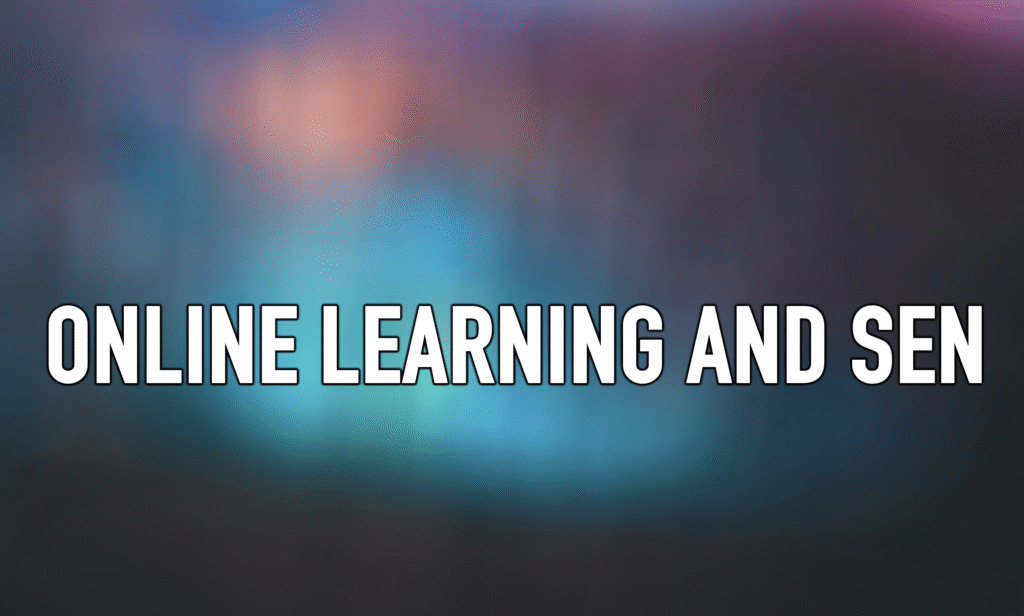
SEN learning: where next?
2025-04-25T08:27:59Z
In a recent post, I outlined some thoughts about how mainstream online education needs to support SEN learners, exploring how online learning can enhance inclusivity for learners with special educa…
In a recent post, I outlined some thoughts about how mainstream online education needs to support SEN learners, exploring how online learning can enhance inclusivity for learners with special educational needs (SEN). Continuing this theme, I think it’s equally important to consider how online education can be effectively implemented for SEN-specific educational settings to address unique challenges and optimise the learning experience for these individuals.
In specialised SEN environments, online learning offers several distinct advantages:
Personalised learning: LMSs can be customised to accommodate individual learning preferences and paces, ensuring that each learner’s unique needs are met
Enhanced accessibility: resources can incorporate assistive technologies, such as screen readers and speech-to-text tools, facilitating access for learners with diverse needs
Flexible scheduling: virtual classrooms provide the flexibility to schedule sessions that align with learners’ energy levels and medical needs, which is particularly beneficial for those with health-related challenges.
For some learners in SEN-specific settings, traditional classroom environments may present behavioural and social challenges. Online learning can mitigate these issues by:
Reduced sensory overload: Learning from home allows learners to control their environment, minimising sensory stimuli that can lead to discomfort or distraction
Facilitated and comfortable social interaction: alternative modes of communication, such as chat or forums, can enable learners to engage socially, if they wish to, in ways that feel safer and more manageable.
Online learning platforms come equipped with tracking and analytics tools that can aid course or school facilitators in monitoring a learner’s progress and promptly identifying areas of concern. This data-driven approach supports timely interventions and personalised support strategies.
While the benefits are notable, implementing online learning in SEN-specific education requires careful consideration:
Technological accessibility: ensuring that both learners and educators have access to reliable technology and internet connectivity is crucial
Training for educators: teachers need adequate training to effectively utilise online tools and adapt their teaching strategies to virtual environments
Maintaining engagement: developing interactive and engaging content is essential to keep learners motivated and involved in their learning.
Integrating online learning into SEN-specific education holds significant promise for enhancing accessibility, personalisation, and overall educational outcomes. By thoughtfully addressing the associated challenges and leveraging the unique advantages of digital platforms, educators can create inclusive and effective learning experiences tailored to the needs of learners with specific educational needs.
While the advantages of online learning for SEN learners are clear, the real potential lies in a coordinated, nationwide effort to bring together the various strands of support for SEN learners under one roof. For this to happen, it requires a concerted and deliberate effort across the education system, government bodies, local authorities, and private sectors. It is essential that different initiatives and resources complement one another rather than operate in silos. Creating a cohesive framework that supports both the collective needs of SEN learners and their personal, unique requirements will ensure that ‘no learner is left behind’ (that sounds familiar).
Such an approach can help deliver services that are tailored to each learner’s unique circumstances while maintaining a unified, systemic structure for effective and sustainable support across the UK. This concerted effort can empower educators, provide clarity for parents, and create a learning ecosystem where all SEN learners, regardless of their location or individual needs, can thrive.
Photo adapted from Mohammad Alizade on Unsplash
Share this: LinkedIn
Bluesky
Mastodon
Auto-posted from news source




